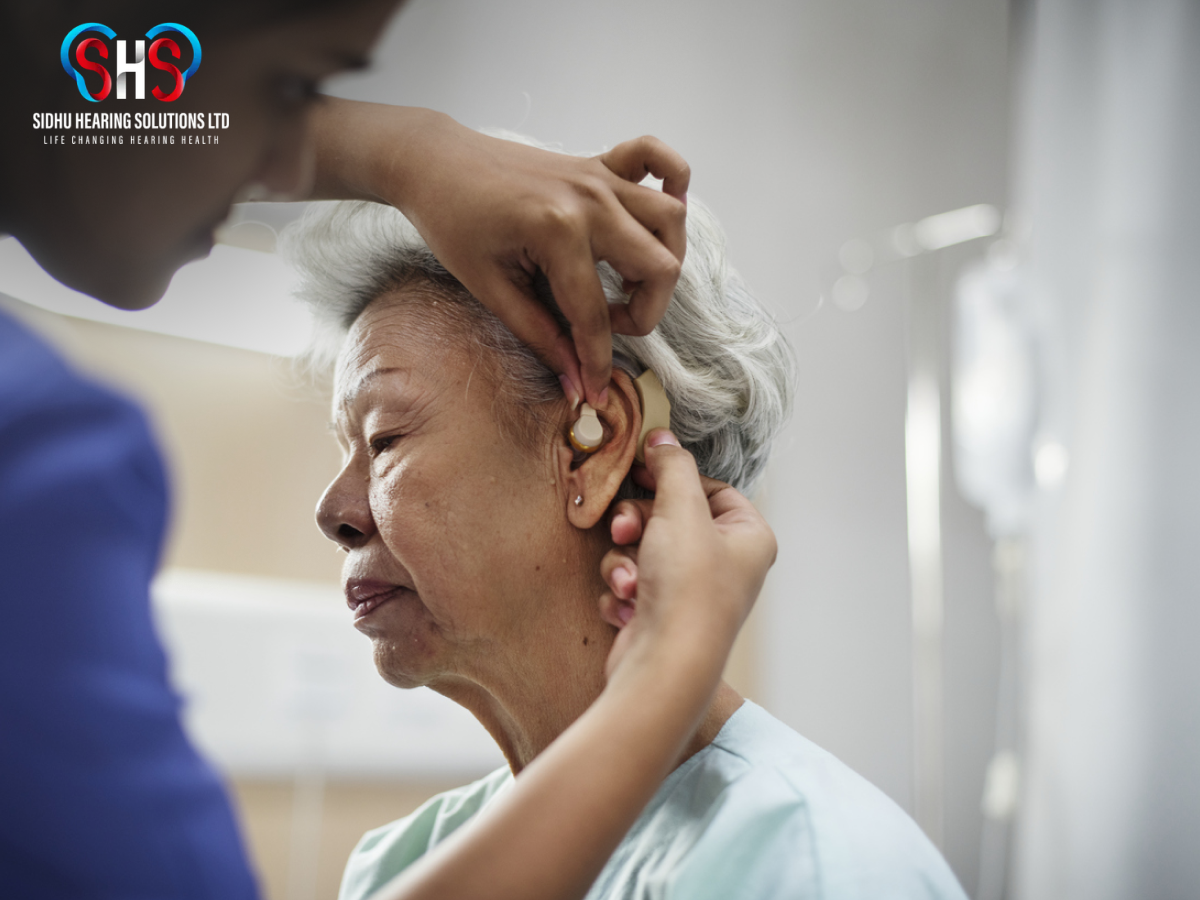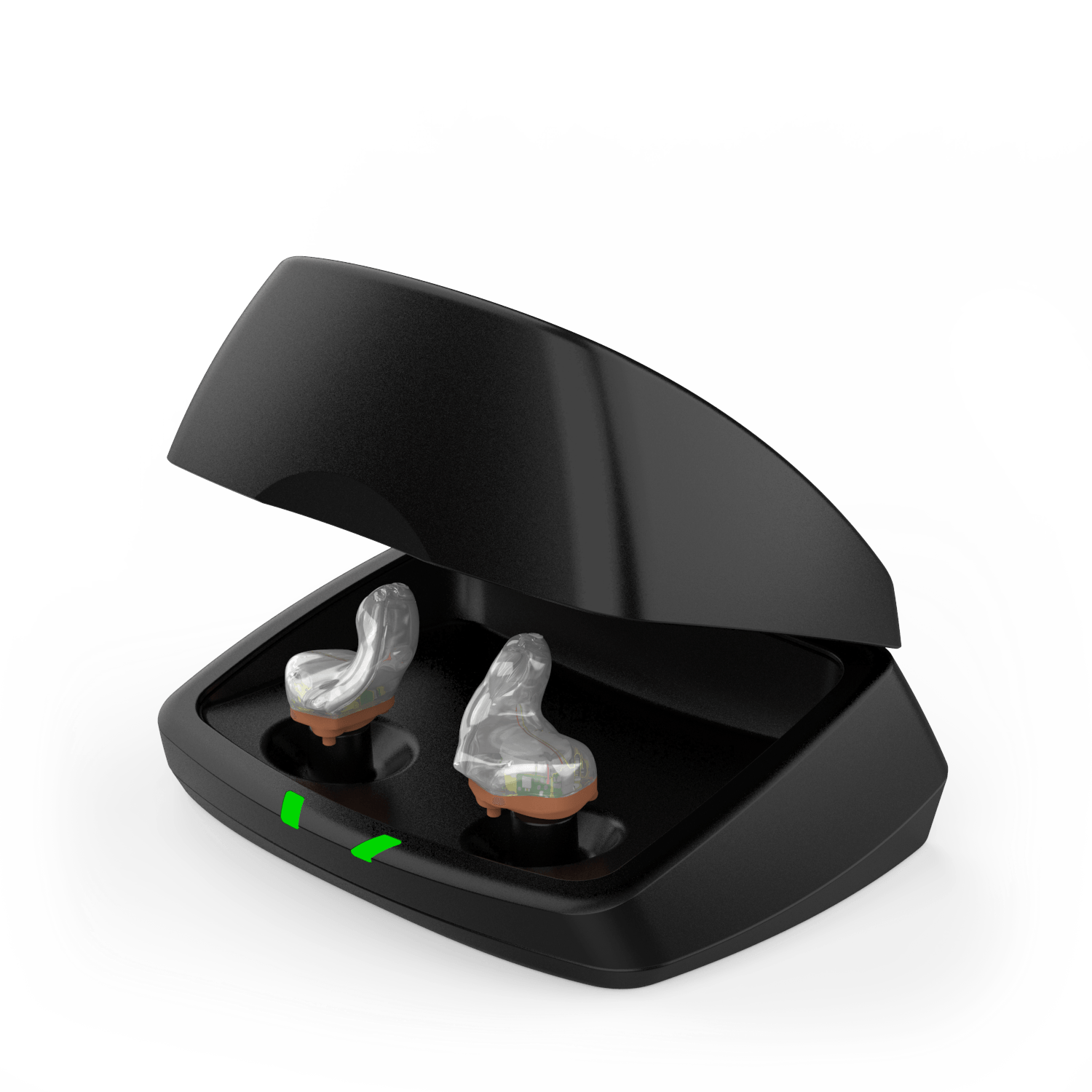BLOG

By Aarti Raicha
•
March 24, 2025
Ear wax which is also known as ceruman, is a naturally occurring substance that is produced by the glands located in the ear canal inside our ears. It is produced to protect and lubricate our ears to prevent dust, bacteria and other foreign particles from entering and damaging our ears. However, when ear wax accumulates excessively inside our ears, it can lead to hearing loss, discomfort and other complications. There are many clinics that offer professional ear wax removal services to address these issues safely and effectively in London. In this blog, we will understand the importance of proper ear care and why professional ear wax removal London is highly recommended to ensure the safety of your ears and hearing capacity. What Are the Methods of Ear Wax Removal? Professional clinics in London use various methods and techniques to remove your ear wax safely: Microsuction It is a technique that uses gentle suction to remove your ear wax. An experienced clinician uses a microscope to see your ear canal and then uses a small suction device to extract your ear wax. This method is considered a safe, comfortable and effective technique to remove the ear wax without any complications. Irrigation This technique involves flushing your ear canal with water to dislodge and remove the ear wax removal London. It might not be suitable for everyone, especially the people who have certain ear conditions. It is advised that this method should only be performed by a professional to minimise the risk of ear damage. Manual Removal Clinicians may use specialised instruments to manually remove your ear wax in some specific cases. This method requires a very steady hand and the expertise to avoid damaging your ear. What is the Importance of Professional Ear Wax Removal? Ears are considered one of the most sensitive parts of our body and cleaning them is of course one of the most risky things to do. That is why looking for professional help to remove your ear wax in London makes sure that the procedure is performed safely and with utmost care. The doctors or the professionals will assess the conditions of your ear and will advise you the most appropriate method to remove your ear wax. Attempting to remove your ear wax at home can lead to major complications such as pushing the wax way deeper which can cause impaction or may damage your ear canal. Moreover, professional clinics stick to strict hygiene standards to reduce the risk of infections. They also provide personalised advice on how to maintain your ear health and prevent future build-ups. Ealing Hearing Centre: The Best Trusted Ear Care Provider Ealing Hearing Centre offers comprehensive and personalised hearing care services including professional ear wax removal London . With over 35 years of experience in this field, the father-daughter duo of audiologists provide patient centred care which is tailored to your specific needs. This hearing centre offers you various services such as hearing aids, ear wax removal London and hearing consultations. They truly pride themselves on delivering high quality ear care which make sure that each of their patients receive personalised attention from start to finish of their treatment. Their approach emphasises on empathy with no rush in order to allow them for thorough assessments and careful treatment of every patient. Ealing Hearing Centre is easily accessible for the people who are looking for the best ear wax removal London. Their commitment to improve the quality of life of their patients through bespoke hearing care has made them a trusted choice for ear health services by thousands. Conclusion Proper ear care is very important to maintain good hearing health. Excessive ear wax build up can give you hearing issues and discomfort in your ear but professional ear wax removal London services offer you safe and effective solutions for your ear wax removal procedure. Trying to remove your wax at home can be very risky as you can damage your ear canal and ear drum but by looking for professional help to remove your ear wax, you not only prevent infections inside your ears but your hearing capacity will also not deteriorate. By choosing professional services offered by Ealing Hearing Centre, you can maintain the health of your ears to their optimum level and enjoy a better quality of life.

By Sukhina Sidhu
•
February 15, 2025
February is the month of love, and there’s no better time to show yourself some love by prioritising your hearing health. At Ealing Hearing, we believe that good hearing is a vital part of living your best life – whether it’s enjoying meaningful conversations, listening to your favourite music, or experiencing the world around you. It’s easy to take your hearing for granted, but just like your heart or your eyes, it needs attention and care to stay in top shape. Why You Should Love Your Hearing Your hearing health plays a significant role in your overall well-being. Studies show that untreated hearing loss can lead to feelings of isolation, frustration, and even depression. Yet, many people wait years before seeking help. Don't wait for your hearing to get worse – taking care of it early on can make a huge difference to your quality of life. The Benefits of Early Intervention By having a hearing check-up now, you can catch any potential problems before they get worse. Early intervention can improve communication, reduce the risk of cognitive decline, and enhance your emotional well-being. Hearing aids and other solutions can dramatically improve your ability to engage with loved ones, take part in social activities, and stay active in your community. We are a tribal species so it’s vital to keep in contact with others for optimum health! At Ealing Hearing, we offer professional assessments, and a range of solutions tailored to your specific needs. Whether you’re looking for hearing aids, advice on how to protect your hearing, or simply want to learn more about your hearing health, we are here to help. Take Action This February This February, give yourself the gift of better hearing. It’s simple – book an appointment with Ealing Hearing Centre today and discover how we can help you hear the world around you more clearly. Our family-run, experienced team are dedicated to providing you with the best care, personalised to your hearing needs. Don’t wait – your hearing deserves love too! Call us today to schedule your consultation. Alternatively, you can book an appointment by emailing us or visiting our website for more information (LINK) Hearing well, living well – show your ears some love this February.

By Sukhina Sidhu
•
January 15, 2025
Have you ever experienced a constant ringing in your ears while you're out at a concert venue? Everything sounds muffled; you talk loudly, practically shouting at your friends because you can't understand them. You know this isn't normal—it's temporary hearing damage. Is it possible to enjoy loud music at a concert or club without experiencing some hearing loss? Yes, you can have fun at your favourite club or venue and still protect your hearing! Here are a few simple tips to help keep your hearing safe while having fun. Carry Reusable Earplugs Reusable earplugs are they're designed so they muffle sounds for clubbers and musicians. They're generally pretty inexpensive, and they make the loud atmosphere safer for your ears without stopping you from hearing the music. If you're attending a music festival or an event with fireworks, you can also purchase ear defenders for your children. Get Away From Speakers Don't stay close to booming speakers. Remember that they're the primary source of loud noises. Dancing too close puts you at risk of suffering permanent hearing damage. Avoid standing directly in front of loud instruments or amplifiers for the same reason. Take Regular Breaks If you're planning to stay in a noisy club or arena for a long time, take regular breaks. This will give your ears a much-needed break. Take advantage of chillout zones which are usually available at concert venues. The zones will provide your ears with a little respite from the booming noise. If there are no chillout zones, plan to leave the venue at specific intervals or even swing by the restroom and take a break. Avoid Shouting If you’re in a loud club atmosphere, don’t add to the noise by shouting. Instead, speak slowly as you usually do. This is healthy for your ears, and it's also beneficial for others' hearing. Allow Recovery Time After being in a loud environment for a long time, give your ears sufficient time to recover. Stay away from a noisy environment for a minimum of 18 hours. If you have to remain in a loud atmosphere for extended periods, make sure you have your earplugs ready! Exercise Regularly Did you know that regular exercise is excellent for our hearing? Yup! taking regular aerobic exercise significantly increases blood flow to the ear. In turn, this helps to reduce hearing loss. If you're planning on going to a weekend concert, maybe it's time to start running a few weeks before. Know the Setlist Improve your concert experience by researching the setlist before the performance. You can email the concert venue and ask. That way, you can anticipate songs scheduled to come up next. That way, you know when to take a break or when that extra loud song is coming on. Get in touch with Sid, Sukhina and the team to find out more

By Sukhina Sidhu
•
December 15, 2024
You may not think that hearing aids have accessories available. Guess what? There are so many to choose from! Hearing aids have all kinds of bits and bobs to go with them; let’s explore some hearing accessories. Hearing Aid Accessories TV Streaming Devices People suffering from hearing loss often turn up the TV until they can hear it. The problem is that the volume they find comfortable is way too loud for people who don’t have hearing troubles. So instead of constantly dealing with the volume being too quiet or too loud, make it so everyone can be comfortable. TV streaming systems allow each person with hearing aids to set the volume for themselves. Most systems have a pretty good range too. You do not have to sit right in front of the TV all the time. You can walk away for a bit and still keep your hearing aids connected. Wireless Transmitting Microphone Sometimes hearing aids need a boost to give people the best hearing experience. Wireless microphones help send audio directly to a person’s hearing aids and reduce background noise. These devices are beneficial in areas with a lot of background noise, such as: ● Restaurants or Cafés ● Small group conversations ● One-on-one conversations ● Class lectures ● Outdoor and indoor activities ● Watching TV ● Phone calls ● Audio/voice from the computer, radio, or other devices Alarm Clocks Hearing aid accessory companies have developed alarm clocks for the hearing impaired. Instead of worrying about getting up on time, your alarm clock can do more than ring in the morning. With Bluetooth connectivity, if you sleep with your hearing aids, such as in-the-ear and in-the-canal hearing aids, you can hear your alarm in real-time. If you don’t sleep with your hearing aids, you can get alarm clocks features that have vibrations, sounds, and lights. The multiple variations of nose and light will help reach through the sleepy fuzz to wake you up. Accessories to Fit Your Life There are all kinds of accessories for hearing aids. Some of the accessories work in connection with your hearing aid to help it perform better. Other products do their best to improve the life of your hearing aid. In addition, other accessories use light and vibration to alert you. Hearing aids are not the bulky things they used to be. There has been many technological advancements, and there will continue to be more breakthroughs making your life more enjoyable. Please get in touch so we can tell you more!

By Sukhina Sidhu
•
November 15, 2024
Hearing loss can be one of the most isolating events your friend undergoes. Without their hearing, they lose access to one of the key senses of the human experience. In addition to that, not everyone knows how to communicate effectively with someone who has hearing loss. Here are five ways you can help a friend experiencing hearing loss. Speak Directly to Your Friend You don’t have to know sign language to communicate with friends experiencing hearing loss. You can communicate through body language. Look directly at your friend, as this can help them focus on your mouth while speaking. You May Need to Repeat What You Said If you notice a friend has trouble hearing, it’s helpful to repeat what you said. It can be as simple as pulling them to the side and repeating what you said or repeating what someone else said. Know Your Friend's Comfort Level Hearing loss is complex to manoeuvre when first diagnosed. Take it upon yourself to ease your friend's burden by asking how they prefer to communicate or what you can do to make communication easier. While your friend may still be determining their own comfort level, be open to learning new ways to communicate or avoid loud bars on a night out. Adjusting your comfort level to meet your friends will only help your friend as they navigate their hearing loss. Speak Clearly If a friend misinterprets what you say, it can cause serious issues. Not only are the words you choose important, but how you say the words are even more important. While speaking clearly may sound like an obvious answer, slurred or muffled speech can increase the stress of those with hearing loss. Aim to enunciate your words, maintain your facial cues, and tell your friend about your genuine attempt to speak with them, not upset or insult them. Reduce Background Noises Background noises can be incredibly distracting and irritating to a hard-of-hearing friend. Removing or reducing background noise will increase their ability to hear and filter through unnecessary tones. Sit at eye level with them and speak in a clear voice so they can best understand you. Rephrase what you said or move to an entirely new location for a more intimate setting to foster a better conversation environment. Your friend's hearing loss shouldn't stop you from enjoying conversations with them. These are just some ways you can help a friend experiencing hearing loss, start the conversation and discover more ways to help your friend. Get in touch with us today to book your hearing test or ear wax removal

By Sukhina Sidhu
•
October 15, 2024
Musicians are among the top groups of people most at risk for noise-induced hearing loss. A musician's livelihood depends on the quality of their ear and the ability to listen and hear the correct key and pitch of their music. Without proper hearing protection, the loudness musicians experience while performing may permanently damage their ability to work. Hearing Damage Factors ● Degree of amplification ● Duration of the sound ● The position of the stage ● Type of instruments used Musicians are at risk of experiencing a ringing-in-the ears sensation commonly known as tinnitus. Musicians can experience tinnitus without hearing loss, but it's typically brought on by volume level. A musician may notice symptoms of temporary hearing damage after exposure to loud music, such as muffled or distorted hearing for voices and tinnitus. Hearing Protection Methods The good news is that there are ways to prevent hearing damage without hanging up your instrument. There are custom and non-custom products available to protect musicians from hearing loss. Using hearing protection helps in combatting hearing loss and preventing tinnitus. Audiology care for musicians includes: ● Molded earplugs ● In-ear noise monitors ● Periodic hearing assessments ● Hyperacusis and tinnitus therapy ● Electronic hearing devices designed for musicians Part of a musician's instrument is the ear, and there's no better way to protect them than with customised plugs molded specifically to fit the ear without compromising the ability to perform. These are available in various materials, including wax, foam, and silicone. In-ear monitors are high-tech devices that musicians use to deliver sound to the ears while creating a background noise barrier. These are essential for musicians playing in large companies like an orchestra. Electronic earplugs are programmed to adjust different sounds and pitches depending on the environment. The earplugs only permit the musician to hear important sounds and filter out damaging noise levels, similar to a hearing aid. Beneficiaries of Audiology Care Audiology care isn't only for the actual musicians but for anyone experiencing high levels of music in general. These people can be: ● Music teachers and conductors ● Entertainment industry staff ● Concert or festivals attendees ● Students in the school orchestra or band Musicians should protect the health of their ears by having hearing tests and wax removal regularly. Hearing tests are essential to record how your ears are coping with the noisy environment over time. Maintaining the health of musicians' ears is essential to having a comfortable and enjoyable experience. Having hearing difficulties? Contact us today

By Ealing Hearing Centre
•
September 15, 2024
The Future of Hearing Aids: AI and Biometric Sensors Leading the Way Living with hearing loss is challenging, but thanks to the rapid advancements in hearing aid technology, those challenges are becoming easier to manage. Modern hearing aids are no longer the bulky devices of the past; they are sleek, sophisticated, and packed with cutting-edge technology. Here in the UK, where more than 11 million people live with some form of hearing loss, these advancements are not just welcome—they're life-changing. In recent years, hearing aid technology has been revolutionised by artificial intelligence (AI) and biometric sensors, transforming the way we approach hearing health. If you’re a hearing aid wearer or someone exploring options for better hearing, understanding these technologies could help you make an informed choice. What Is AI Doing in Hearing Aids? Artificial intelligence, once the stuff of science fiction, is now being seamlessly integrated into hearing aids. But what does that mean for you as a user? Adaptive Sound Processing Traditional hearing aids often amplify all sounds equally, making noisy environments overwhelming. AI-driven hearing aids, however, use machine learning algorithms to learn from your listening preferences. Over time, these devices can differentiate between background noise and important sounds, like speech, and adjust automatically. Imagine a hearing aid that knows to turn down the noise of a bustling café while highlighting your friend's voice—AI makes this possible. Personalisation and Learning The more you wear an AI-powered hearing aid, the smarter it gets. These devices can store data on your listening habits and environments, allowing them to provide more tailored sound adjustments. For instance, if you frequently attend meetings or love spending time in nature, your hearing aids will start optimising for these settings. Improved Speech Recognition AI is enhancing speech recognition technology in hearing aids. Through advanced natural language processing, modern devices can distinguish between multiple speakers and help focus on the most relevant one. This is particularly useful in group settings, making conversations less strenuous and more enjoyable. Enter Biometric Sensors: More Than Just Hearing Aids Biometric sensors are another exciting addition to modern hearing aids, transforming them from simple sound amplifiers into multi-functional health monitoring devices. Heart Rate Monitoring Some hearing aids now come equipped with biometric sensors that can monitor your heart rate. For individuals who wear their hearing aids for extended periods, this feature provides continuous health monitoring without the need for additional devices. It's like having a fitness tracker in your ear! Fall Detection and Alerts Falls are a major concern, especially for older adults. With built-in accelerometers and gyroscopes, modern hearing aids can detect sudden movements or falls and send alerts to a designated contact, such as a family member or caregiver. This is a game-changer for those living alone, providing both users and their loved ones peace of mind. Tracking Overall Wellbeing Biometric sensors can also track steps, activity levels, and even sleep patterns. This data is invaluable for maintaining overall health and wellbeing, offering insights that can be shared with healthcare providers for more personalised care plans. Get in touch for more information.

By Ealing Hearing Centre
•
August 15, 2024
Hearing loss redefines how you navigate everyday life, and it can consequently break down relationships between you and your loved ones. Talking about ideas, emotions, beliefs, and desires is the backbone of any relationship. When these critical expressions are limited, relationships may suffer. Luckily, improving your hearing through hearing aids can strengthen your relationships by restoring your ability to communicate and engage your partner or loved ones better. Here are ways improving your hearing can help strengthen your relationships. Improves Communication Hearing loss interferes with your ability to recognise speech patterns or understand specific words or phrases. Misunderstandings can arise because of this speech interference, making conversing generally difficult. Not communicating well with your loved ones because of speech difficulties can harm your relationships. The best news is that when you improve your hearing with hearing aids, you increase your capacity to listen and communicate effectively, improving your relationships significantly. Creates Intimacy Whispering words of comfort, encouraging your partner when in distress, or performing acts of kindness are how we make partners feel special. When hearing loss changes how you convey these special moments, distance and loss of intimacy can begin to define your relationship. Improving your hearing helps you reconnect with your partner and enables you to be present and attune to their feelings and needs in the relationship. Increases Independence Unexpected changes like hearing loss can affect your autonomy which means that friends and family have to be present to support you. Even though your loved ones are likely happy and willing to help you as much as necessary, it can limit your and their time to enjoy social activities. Improving your hearing means enjoying social activities with friends and family. You can also make personal life choices which raises your self-confidence and increases your ability to interact and live with different people. Desire to Join Activities In addition to being independent, improving your hearing with hearing aids restores a sense of fun and spontaneity in your relationship. Hearing loss makes dinner in a busy restaurant, a cinema date, or a simple activity like a play date a source of confusion and anxiety. But, with the help of a hearing aid, you can enjoy all these activities and share fun experiences with the people you love. Ability to Help Others Besides communicating your needs more effectively with improved hearing, improving your hearing also alleviates your loved ones’ worry because they can rely on you in an emergency or an illness. Generally, improving your hearing allows you to support your loved one in various ways and improves your overall relationship. Don’t wait to seek help improving your hearing; you will find that as your hearing improves, so do your relationships. Contact us today to book your hearing test or ear wax removal – we look forward to seeing you! You can contact us HERE

By Ealing Hearing Centre
•
July 21, 2024
We have some exciting news to share with our Ealing Hearing Centre family! Our beloved Audiologist and Director, Sukhina, is taking a well-deserved break as she steps into a new role – motherhood. She will be on maternity leave as she welcomes ‘Baby Gill’, into the world. While we will miss her expertise and warmth at the clinic, we are thrilled for this wonderful addition to her family. During her absence, the clinic will continue to operate smoothly under the capable hands of Sid, our other Audiologist and Director. Sukhina has been a cornerstone of our clinic, providing compassionate care and expert guidance to all our clients. Her passion for audiology and her commitment to our community have made her a cherished part of many lives. As she starts out on this beautiful journey, we want to extend our heartfelt congratulations to her and her family. Sukhina's departure, even if temporary, is both a moment of joy and a bittersweet farewell. We know she’ll be back with stories to share and an even brighter smile! Meet Sid: Your Audiology Expert
Address
Ealing Hearing Centre
64 Northfield Avenue
Ealing
W13 9RR
Ealing Hearing Centre is a trading name of Sidhu Hearing Solutions Ltd a company registered in England and Wales with company number 13649263.
© 2025
All Rights Reserved | Sidhu Hearing Solutions Ltd
